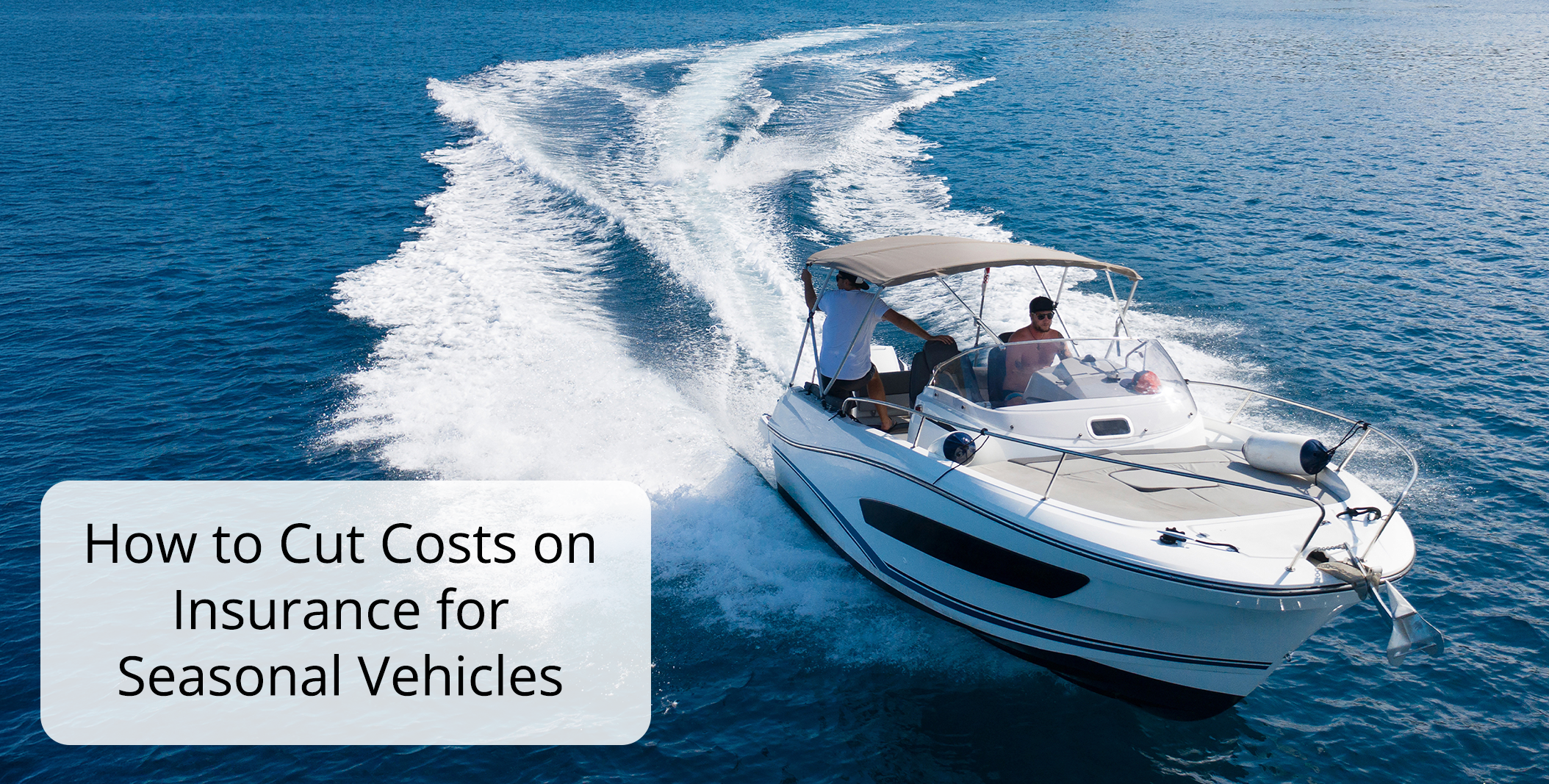
Owning seasonal vehicles like motorcycles, boats, RVs, or convertibles is a great way to enjoy the warmer months, but paying for year-round insurance can feel like an unnecessary expense if you only use these vehicles a few months out of the year. Fortunately, there are strategies to reduce your insurance costs while still ensuring you’re covered when it matters most.
In this blog, we’ll explore practical tips for saving money on insurance for your seasonal vehicles without compromising protection.
1. Understand Seasonal Vehicle Insurance
Seasonal vehicle insurance is designed for vehicles that are not used year-round. It provides coverage tailored to your usage patterns, ensuring that your vehicle is protected during the months it’s in use and stored safely during the off-season. The two primary components of coverage are:
- Active Season Coverage: Comprehensive and liability coverage for the months you use the vehicle.
- Storage Coverage: Protection against risks like theft, vandalism, and fire while the vehicle is in storage.
Understanding how seasonal insurance works is the first step in cutting unnecessary costs.
2. Switch to Comprehensive-Only Coverage During the Off-Season
One of the easiest ways to save on insurance is by pausing certain coverages when your vehicle is not in use.
- Liability Coverage: If the vehicle is stored and won’t be driven, liability coverage may not be necessary.
- Collision Coverage: This coverage can also be paused if the vehicle won’t be on the road.
- Comprehensive Coverage: Keep this active to protect against risks like theft, weather damage, or fire while your vehicle is in storage.
Work with your insurance provider to adjust your policy during the off-season and reinstate full coverage before the active season begins.
3. Bundle Insurance Policies
If you own multiple vehicles or have other insurance policies, bundling them with the same provider can lead to significant savings. Many insurers offer discounts when you combine:
- Seasonal vehicle insurance with regular auto insurance.
- Home and auto insurance policies.
- Coverage for multiple seasonal vehicles, like an RV and a boat.
Bundling not only saves money but also simplifies policy management.
4. Use Usage-Based Insurance
Usage-based insurance (UBI) programs, often called pay-as-you-drive plans, calculate premiums based on how much and how safely you drive.
- For seasonal vehicles, UBI can result in lower premiums because these vehicles are only used for part of the year.
- Some insurers use telematics devices or mobile apps to track mileage and driving behavior, rewarding careful and limited use with discounts.
5. Consider Storage Location and Security Features
Where and how you store your seasonal vehicle during the off-season can impact your insurance premiums.
- Garage or Secure Facility: Storing your vehicle in a locked garage or a secure storage facility can lower the risk of theft or damage, leading to reduced rates.
- Anti-Theft Devices: Installing security features like alarms, tracking systems, or immobilizers can further lower premiums by reducing the likelihood of theft.
Notify your insurer of your storage arrangements to ensure you receive any eligible discounts.
6. Take Advantage of Seasonal Insurance Plans
Many insurers offer specialized plans for seasonal vehicles. These plans provide flexibility to tailor coverage to your usage patterns.
- Some plans automatically adjust coverage levels during off-season months.
- Discuss seasonal insurance options with your provider to find a plan that minimizes costs while maintaining adequate protection.
7. Maintain a Clean Driving Record
A clean driving record can significantly impact your insurance rates.
- Avoid traffic violations or accidents while using your seasonal vehicle.
- Safe driving habits not only keep you safe on the road but also ensure you qualify for good driver discounts.
8. Increase Your Deductible
Raising your deductible—the amount you pay out of pocket before insurance kicks in—can lower your premiums.
- If you’re confident in your ability to cover minor repair costs, opting for a higher deductible can reduce the overall cost of your policy.
- This strategy works well for vehicles that are rarely used and carefully stored.
9. Take Advantage of Discounts
Ask your insurance provider about discounts that may apply to seasonal vehicle insurance. Some common discounts include:
- Multi-Policy Discounts: For bundling multiple policies.
- Low-Mileage Discounts: For vehicles used sparingly.
- Safety Course Discounts: For completing a boating, motorcycle, or RV safety course.
- Membership Discounts: Some insurers offer discounts to members of certain organizations, clubs, or associations.
10. Regularly Review and Update Your Policy
Insurance needs change over time, so it’s important to review your policy annually.
- If your vehicle usage decreases or storage arrangements change, notify your insurer to adjust your coverage.
- Shop around and compare quotes from multiple insurers to ensure you’re getting the best rate.
11. Work with an Independent Insurance Agent
An independent insurance agent can help you navigate the complexities of seasonal vehicle insurance.
- They can compare policies from multiple providers and find options tailored to your needs.
- Agents often know about discounts or specialized plans that aren’t widely advertised.
Final Thoughts
Owning a seasonal vehicle doesn’t mean you have to pay for full insurance coverage year-round. By adjusting your policy during the off-season, bundling policies, and exploring discounts, you can significantly reduce your premiums while maintaining the protection you need.
To get the best coverage for your seasonal vehicle, consult with an independent insurance agent or your provider. Taking a proactive approach to your insurance policy will help you save money and enjoy your seasonal vehicle without unnecessary financial stress.
Disclaimer: The information provided in this article is for educational purposes only. It is important to consult with a qualified insurance professional for advice tailored to your specific circumstances.